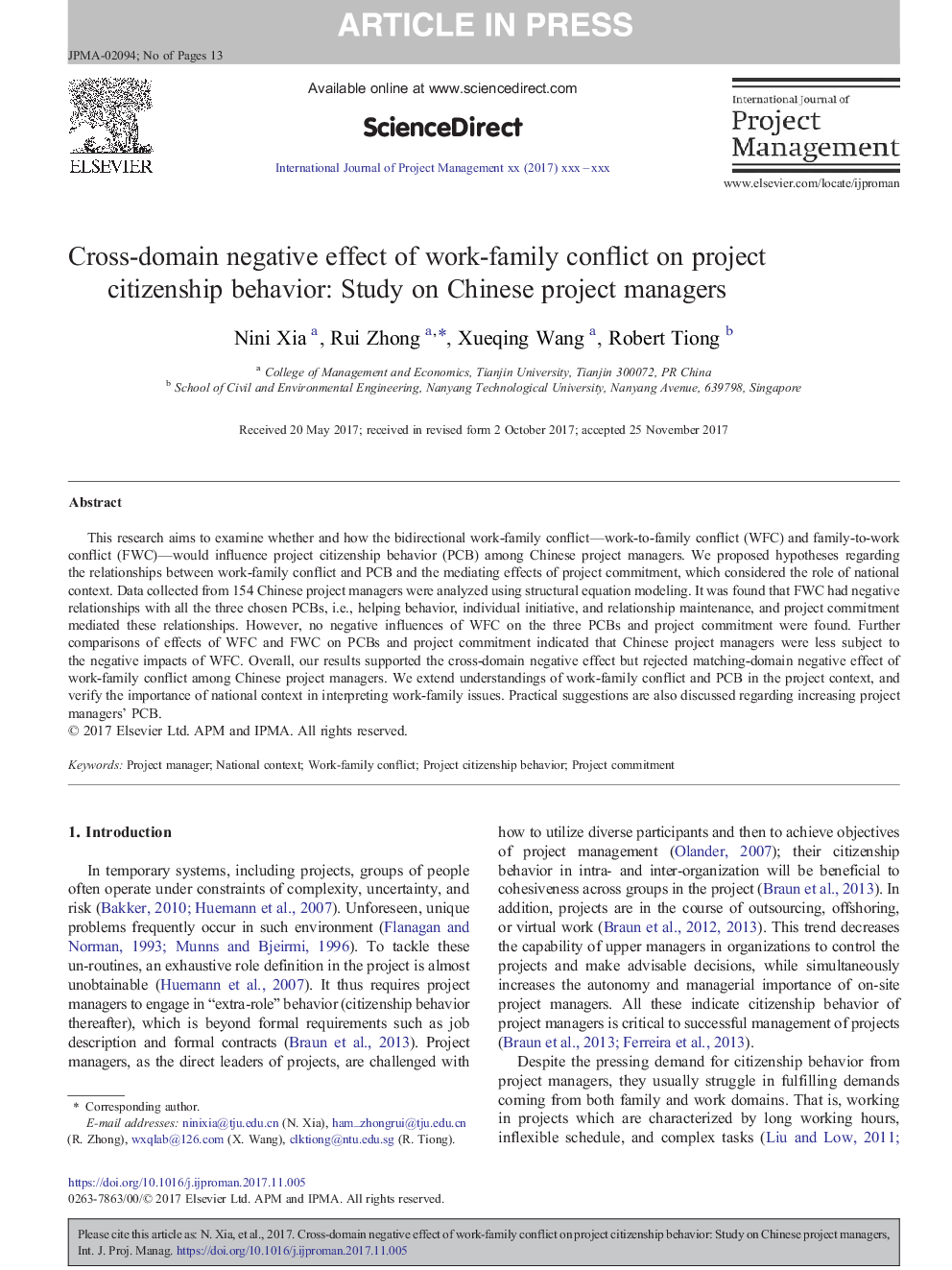ترجمه فارسی عنوان مقاله
تاثیر منفی متقابل دامنۀ خانواده و خانواده بر رفتار شهروندی پروژه: مطالعه مدیران پروژه چینی
عنوان انگلیسی
Cross-domain negative effect of work-family conflict on project citizenship behavior: Study on Chinese project managers
| کد مقاله | سال انتشار | تعداد صفحات مقاله انگلیسی |
|---|---|---|
| 154117 | 2018 | 13 صفحه PDF |
منبع

Publisher : Elsevier - Science Direct (الزویر - ساینس دایرکت)
Journal : International Journal of Project Management, Volume 36, Issue 3, April 2018, Pages 512-524
ترجمه کلمات کلیدی
مدیر پروژه، زمینه ملی، درگیری کار و خانواده، رفتار شهروندی پروژه، تعهد پروژه،
کلمات کلیدی انگلیسی
Project manager; National context; Work-family conflict; Project citizenship behavior; Project commitment;

